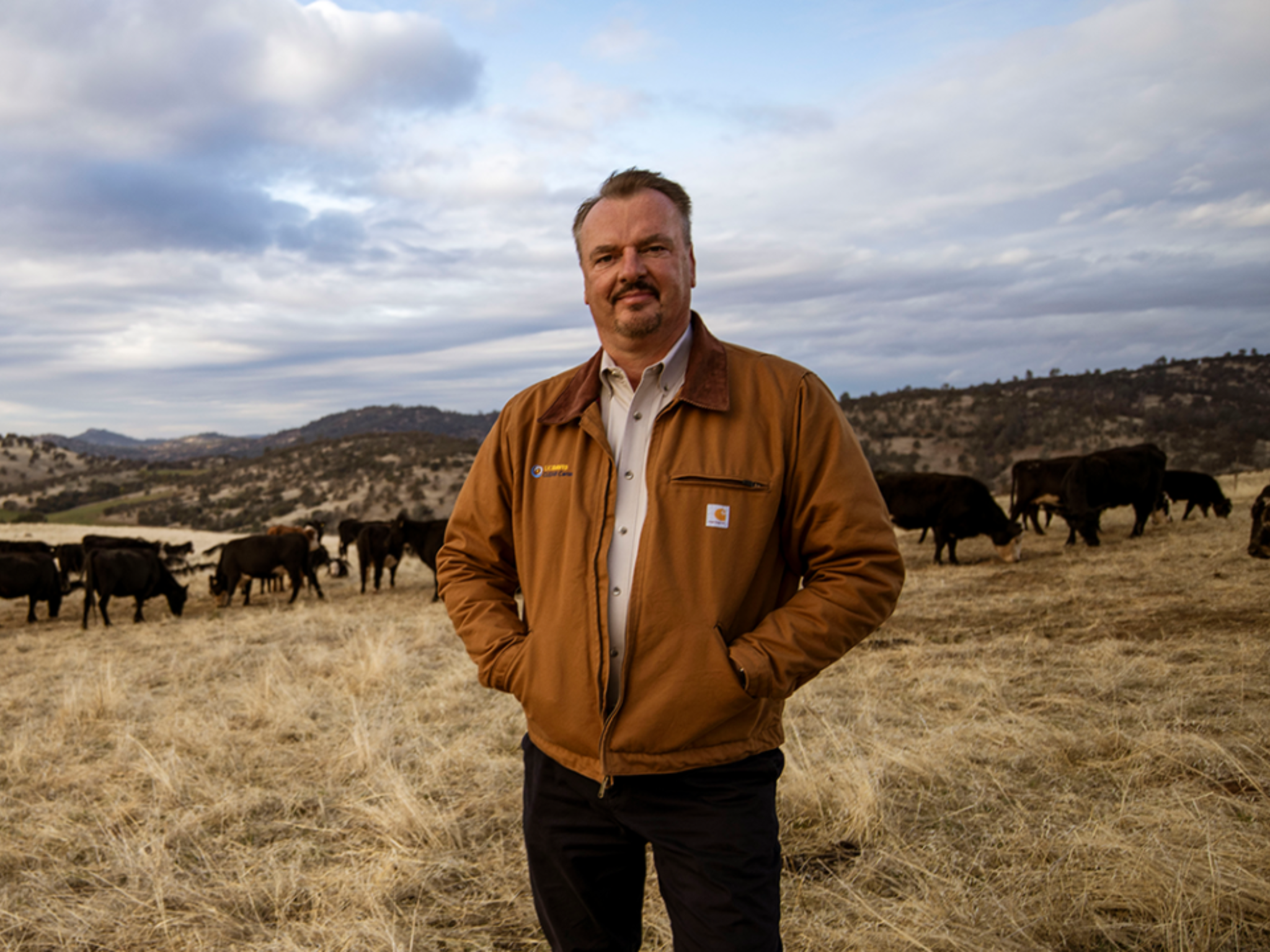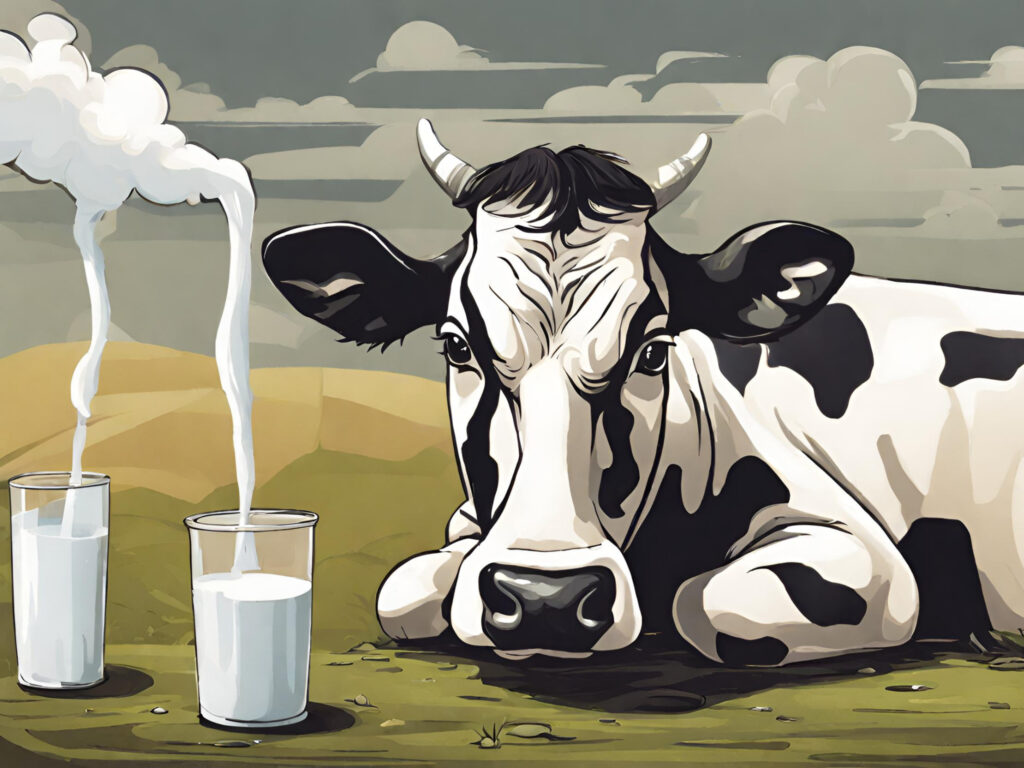
As COP30 approaches, South American meat giants have been pushing GWP*, a controversial methane reporting tool that hides their true emissions, with the help of a UC Davis scientist.
Controversy is never too far away from the UN’s flagship climate summit. The last two COPs were hosted by oil majors UAE and Azerbaijan, and were host to record-breaking numbers of fossil fuel and meat industry lobbyists.
This year’s conference is in Brazil, which is emitting twice the greenhouse gas limit outlined by its Paris Agreement goals. Now, a new investigation has revealed that Big Ag is spending millions on lobbying campaigns to promote a controversial methane reporting metric in South America.
Called GWP*, the global warming potential measurement tool has been condemned by climate experts because it downplays the livestock industry’s impact on the climate, allowing producers to absolve themselves of the responsibility to cut methane emissions. In other words, it lets them increase their pollution while greenwashing consumers about their mitigation actions.
The man at the centre of the investigation by Climate Tracker and Consenso is Frank Mitloehner, head of the UC Davis Clarity and Leadership for Environmental Awareness and Research (CLEAR) Center. The research found that Mitloehner has been paid millions to travel across South America to promote the adoption GWP*.
But doing so would allow livestock producers in the region to “reduce their ambition or even increase their methane emissions while claiming to be in line with their governments’ climate commitments”, the research suggests: “In the most extreme case, this new metric would also allow them to claim that they are offsetting emissions from other sectors, such as fossil fuels, and receive benefits in the form of carbon credits as a result.”
Livestock groups spend millions on lobbying for GWP*

GWP* originated from University of Oxford researchers in 2018, who presented it as an alternative to existing methane measurement metrics. Currently, governments and the Intergovernmental Panel on Climate Change (IPCC) use GWP20 and GWP100 to measure the warming potential of total greenhouse gas emissions over a period of 20 and 100 years, respectively.
But GWP* focuses on changes in the rate of emissions between two points in time (usually over a decadal timescale), rather than the absolute level of emissions. It only addresses new or extra methane emissions. If companies continue to produce the same amount of methane as they have historically, their global warming potential would be calculated as zero.
According to the investigation, by applying GWP*, the livestock sector in Argentina, Paraguay and Uruguay “could continue to increase their methane emissions while claiming to be in line with their countries’ climate commitments”. Brazil, meanwhile, would require the animal agriculture industry to cut methane at a much lower rate than the country’s climate goals published last year.
The IPCC has already rejected the use of GWP*, and last year, 64 organisations signed a letter urging governments not to adopt GWP*.
But Mitloehner has received $3M in direct funding from the Institute for Feed Education and Research (IFEEDER), an arm of the American Feed Industry Association, which represents Big Meat companies like JBS, Cargill, and Tyson Foods, since 2019 for a project aiming to “rethink methane”.
The academic has been travelling through Brazil, Argentina, Paraguay and Uruguay to push for the adoption of GWP*. The four countries will jointly negotiate agricultural issues at COP30. Except for Brazil, Mitloehner’s participation in the other countries was supported by livestock unions related to the Global Roundtable for Sustainable Meat, which includes IFEEDER contributors and businesses like McDonald’s, Burger King and ADM.
He also received $9,500 in public funds from Uruguay to recommend that the environment and agriculture ministries in the Lacalle Pou administration modify how livestock emissions are calculated. In Paraguay, he gave a talk in favour of GWP*, backed by the nation’s main livestock association, which then managed to include it in the country’s official policy.
Mitloehner was paid by Argentina’s Rural Society to spread “the real methane story” in events across the country, and by JBS to do the same in Brazil.
How Frank Mitloehner has influenced food policy globally

The UC Davis academic has claimed that the livestock industry “could offset all the global warming contributions of our sector, some of the historical emissions and some of the carbon dioxide from the fossil fuel industry”.
His influence reaches far beyond South America – he has done similar work in the US, Ireland, Australia and New Zealand. He praised the latter’s consideration of GWP* as a “smart move” earlier this year.
Throughout his career, Mitloehner has received over $12M in funding from meat industry groups and government bodies since 2002. In 2009, the Beef Checkoff programme – an industry-funded scheme that charges levies to cattle producers to boost marketing efforts – provided him with $26,000 to conduct an environmental impact assessment of the sector.
The resulting study, which did not acknowledge the beef industry funding, claimed that American livestock’s contribution to US emissions was smaller than that of all livestock on a global scale.
Moreover, he has previously advised President Barack Obama on agricultural research and policy, and published non-peer-reviewed papers with wide-reaching impact. One of them was credited for keeping a reduction in meat consumption out of the national dietary guidelines – despite Americans eating over six times more meat than recommended in a planet-friendly diet by the Eat-Lancet Commission.
Speaking of which, research shows Mitloehner and his CLEAR Center coordinated a “massive campaign” that was successful in convincing audiences to turn away from the EAT-Lancet report.
His work has had an impact on the UN climate conference too. He was paid public money for travel and for drafting a guidance report for Uruguay’s foreign climate policy in COP27 negotiations in Egypt, with a summary outlining one of his main recommendations was to “perform livestock emissions calculations using GWP*”.
Meat and dairy lobbyists have been highly successful, with beef sales hitting an all-time record last year (despite sky-high prices), just as sales of vegan alternatives fell further. Ahead of COP30, regional government leaders, climate activists, and other stakeholders have called on national governments to draft and implement action plans for plant-based foods to promote a healthy, sustainable dietary transition.
The post Ahead of COP30, South America’s Livestock Lobby is Fighting Hard to Hide Its Methane Impact appeared first on Green Queen.
This post was originally published on Green Queen.